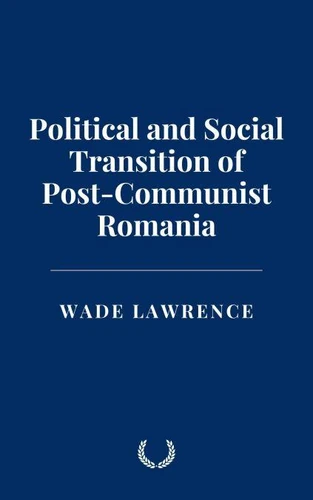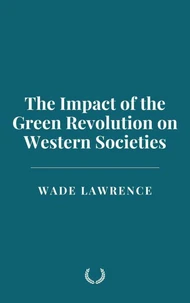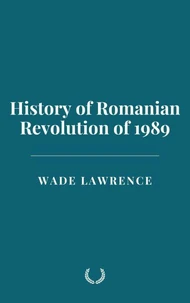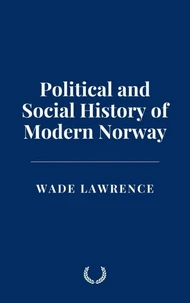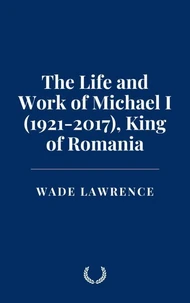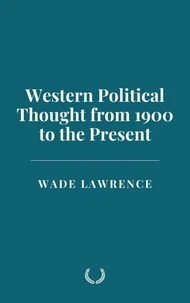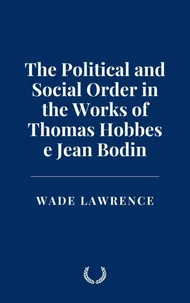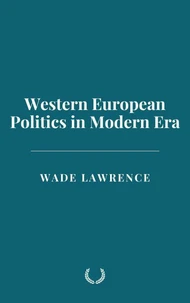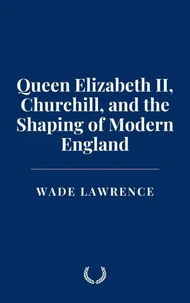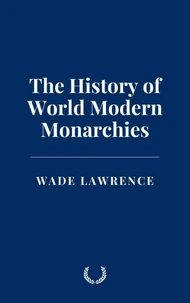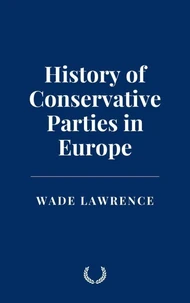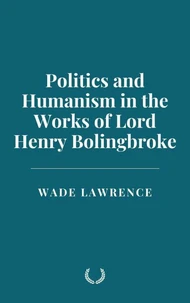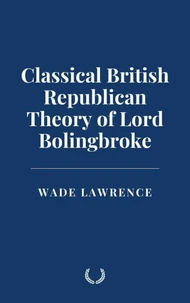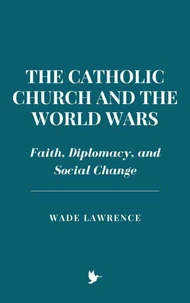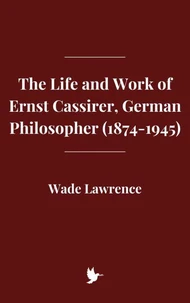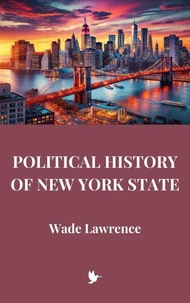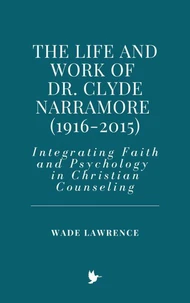Political and Social Transition of Post - Communist Romania
Par :Formats :
Disponible dans votre compte client Decitre ou Furet du Nord dès validation de votre commande. Le format ePub est :
- Compatible avec une lecture sur My Vivlio (smartphone, tablette, ordinateur)
- Compatible avec une lecture sur liseuses Vivlio
- Pour les liseuses autres que Vivlio, vous devez utiliser le logiciel Adobe Digital Edition. Non compatible avec la lecture sur les liseuses Kindle, Remarkable et Sony
 , qui est-ce ?
, qui est-ce ?Notre partenaire de plateforme de lecture numérique où vous retrouverez l'ensemble de vos ebooks gratuitement
Pour en savoir plus sur nos ebooks, consultez notre aide en ligne ici
- FormatePub
- ISBN8230596028
- EAN9798230596028
- Date de parution20/01/2025
- Protection num.pas de protection
- Infos supplémentairesepub
- ÉditeurIndependently Published
Résumé
This book explores the political, social, and economic transitions of post-communist Romania, from the collapse of Ceau?escu's totalitarian regime in 1989 to its integration into the European Union and NATO in the 21st century. It examines Romania's complex journey towards democratic consolidation, navigating the legacies of a centralized, repressive communist state while seeking to align itself with Western values of democracy, human rights, and economic liberalization.
The text delves into Romania's early years after the revolution, marked by political fragmentation, economic disarray, and the persistence of corruption, and the gradual development of more pluralistic political structures. It considers the challenges of privatization and economic reform, the resurgence of civil society, and Romania's efforts to establish a competitive market economy. The book analyzes Romania's evolving foreign policy, balancing its aspirations for integration into European and transatlantic institutions with its historical ties to Russia and the complexities of its regional security concerns.
It highlights key moments in Romania's integration into NATO and the EU, and its role as a member of these institutions, especially in relation to the ongoing geopolitical tensions in Eastern Europe, particularly regarding Russia. The narrative also explores the struggles Romania faced in addressing minority rights, gender equality, judicial reform, and corruption, underscoring the country's ongoing challenges and achievements in consolidating democratic institutions.
Throughout the book, Romania's post-communist experience is framed within the context of its desire for modernization, economic growth, and its place in a larger European and global order. It offers a comprehensive analysis of Romania's political, economic, and social transformations, shedding light on the deep-seated struggles and successes that have shaped the country's current status as a member of the European Union and NATO.
The book ultimately presents Romania's journey as a microcosm of the broader challenges facing post-communist societies in their quest for democracy, prosperity, and global integration.
The text delves into Romania's early years after the revolution, marked by political fragmentation, economic disarray, and the persistence of corruption, and the gradual development of more pluralistic political structures. It considers the challenges of privatization and economic reform, the resurgence of civil society, and Romania's efforts to establish a competitive market economy. The book analyzes Romania's evolving foreign policy, balancing its aspirations for integration into European and transatlantic institutions with its historical ties to Russia and the complexities of its regional security concerns.
It highlights key moments in Romania's integration into NATO and the EU, and its role as a member of these institutions, especially in relation to the ongoing geopolitical tensions in Eastern Europe, particularly regarding Russia. The narrative also explores the struggles Romania faced in addressing minority rights, gender equality, judicial reform, and corruption, underscoring the country's ongoing challenges and achievements in consolidating democratic institutions.
Throughout the book, Romania's post-communist experience is framed within the context of its desire for modernization, economic growth, and its place in a larger European and global order. It offers a comprehensive analysis of Romania's political, economic, and social transformations, shedding light on the deep-seated struggles and successes that have shaped the country's current status as a member of the European Union and NATO.
The book ultimately presents Romania's journey as a microcosm of the broader challenges facing post-communist societies in their quest for democracy, prosperity, and global integration.
This book explores the political, social, and economic transitions of post-communist Romania, from the collapse of Ceau?escu's totalitarian regime in 1989 to its integration into the European Union and NATO in the 21st century. It examines Romania's complex journey towards democratic consolidation, navigating the legacies of a centralized, repressive communist state while seeking to align itself with Western values of democracy, human rights, and economic liberalization.
The text delves into Romania's early years after the revolution, marked by political fragmentation, economic disarray, and the persistence of corruption, and the gradual development of more pluralistic political structures. It considers the challenges of privatization and economic reform, the resurgence of civil society, and Romania's efforts to establish a competitive market economy. The book analyzes Romania's evolving foreign policy, balancing its aspirations for integration into European and transatlantic institutions with its historical ties to Russia and the complexities of its regional security concerns.
It highlights key moments in Romania's integration into NATO and the EU, and its role as a member of these institutions, especially in relation to the ongoing geopolitical tensions in Eastern Europe, particularly regarding Russia. The narrative also explores the struggles Romania faced in addressing minority rights, gender equality, judicial reform, and corruption, underscoring the country's ongoing challenges and achievements in consolidating democratic institutions.
Throughout the book, Romania's post-communist experience is framed within the context of its desire for modernization, economic growth, and its place in a larger European and global order. It offers a comprehensive analysis of Romania's political, economic, and social transformations, shedding light on the deep-seated struggles and successes that have shaped the country's current status as a member of the European Union and NATO.
The book ultimately presents Romania's journey as a microcosm of the broader challenges facing post-communist societies in their quest for democracy, prosperity, and global integration.
The text delves into Romania's early years after the revolution, marked by political fragmentation, economic disarray, and the persistence of corruption, and the gradual development of more pluralistic political structures. It considers the challenges of privatization and economic reform, the resurgence of civil society, and Romania's efforts to establish a competitive market economy. The book analyzes Romania's evolving foreign policy, balancing its aspirations for integration into European and transatlantic institutions with its historical ties to Russia and the complexities of its regional security concerns.
It highlights key moments in Romania's integration into NATO and the EU, and its role as a member of these institutions, especially in relation to the ongoing geopolitical tensions in Eastern Europe, particularly regarding Russia. The narrative also explores the struggles Romania faced in addressing minority rights, gender equality, judicial reform, and corruption, underscoring the country's ongoing challenges and achievements in consolidating democratic institutions.
Throughout the book, Romania's post-communist experience is framed within the context of its desire for modernization, economic growth, and its place in a larger European and global order. It offers a comprehensive analysis of Romania's political, economic, and social transformations, shedding light on the deep-seated struggles and successes that have shaped the country's current status as a member of the European Union and NATO.
The book ultimately presents Romania's journey as a microcosm of the broader challenges facing post-communist societies in their quest for democracy, prosperity, and global integration.

